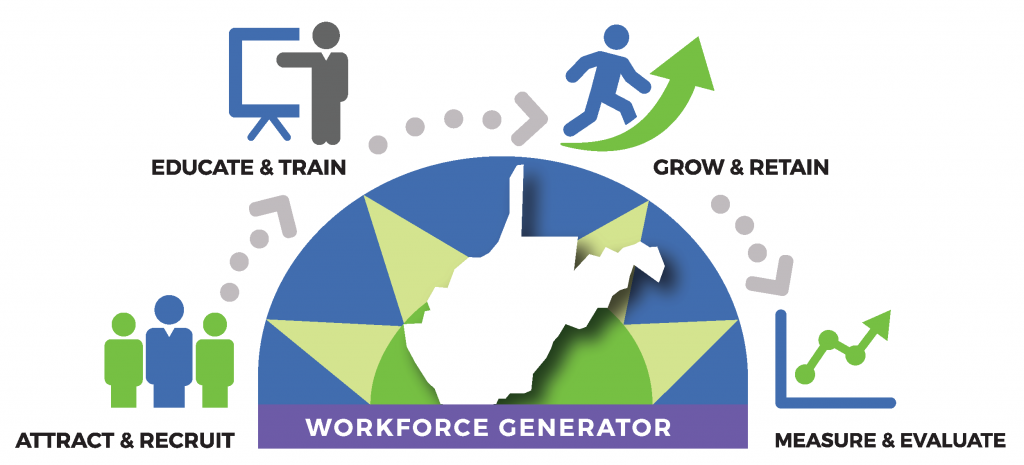BHI Delivers: Workforce Generation & Retention for WV
A healthy workforce requires access to mental health treatment
Mental illness and substance misuse cost employers an estimated $80 to $100 billion annually in indirect costs alone. (businessgrouphealth.org)
According to the Journal of Employee Assistance, data from 4,707 clients who received employer-sponsored mental health programming found that a company received the equivalent of more than $10,000 in additional employee productivity, per year, for each employee who used those behavioral health services. Productivity at work increased by more than 25 percent.
BHI would follow proven model to retain graduates in West Virginia. The Rural Health Initiative (RHI) Act created by the West Virginia Legislature in 1991 provides funding toward the placement and retention of primary care providers in underserved areas. The model used for the RHI could translate well for behavioral health workforce development.
Currently, the state lacks providers and funding to support workforce development in these areas. Using similar incentives as those used to attract and retain rural health providers also could work to encourage behavioral health graduates to remain in state. In addition, many graduates stay in the communities or with the agencies where they complete their internships and clinical training.
Building sustained capacity
West Virginia needs a consistent, stable funding source focused solely on behavioral health workforce development. Working with policymakers, state leaders, education and industry partners across the state, we can work to advance dedicated resources toward West Virginia’s most challenging issues in behavioral healthcare.
• West Virginia has actively sought and received significant federal grant funding to support and improve the state’s behavioral healthcare infrastructure.
• Small awards from philanthropic and private organizations have included support for behavioral health workforce development.
• State funding for the Mental Health Loan Repayment Program supports retention in underserved communities.
Because of these efforts and investments, we have a solid base in place to continue building a sustainable workforce infrastructure.


